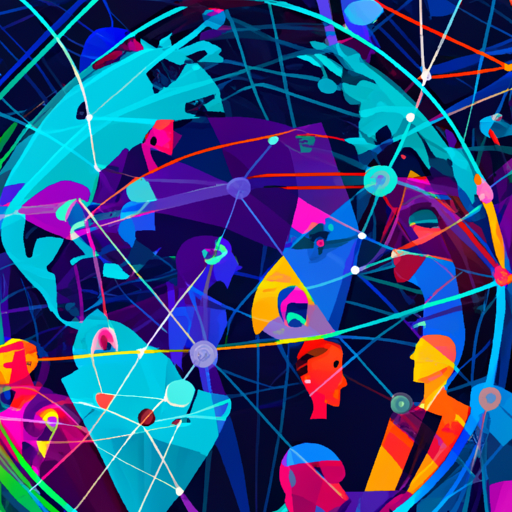The Invention of the Internet: Transforming Communication and Connectivity

The Invention of the Internet: Transforming Communication and Connectivity
The invention of the internet has undoubtedly been one of the most significant milestones in human history, revolutionizing the way we communicate and connect with one another. This massive global network has opened up a world of endless possibilities, breaking down barriers and bringing people from different corners of the world closer together.
The origins of the internet trace back to the 1960s, a time when computers were largely inaccessible and operated in isolation. Amid the backdrop of the Cold War, the U.S. government initiated a project called ARPANET (Advanced Research Projects Agency Network) with the idea of establishing a decentralized communication network that could effectively survive a nuclear attack.

The foundational concept of the internet was based on packet switching, a method that breaks data into small chunks or packets, allowing for more efficient data transmission. This system ensured that data could be sent and received across multiple computers simultaneously, increasing the resilience and reliability of communication networks.
The internet's transformative abilities began to emerge during the 1980s when it started to transition into a civilian and commercial system. Tim Berners-Lee, a British computer scientist, played a pivotal role in this transition with his invention of the World Wide Web in 1989. The World Wide Web provided a user-friendly interface that allowed the general public to access and navigate the internet, marking a turning point in its widespread adoption.
As the internet gained popularity, it quickly became apparent that it had the power to change the world. Communication was no longer limited to traditional means such as letters, telegrams, or phone calls. Instead, people could now send messages instantaneously across vast distances, breaking down time and space constraints.
Email, perhaps one of the most significant innovations that came with the internet, revolutionized the way people communicated. It allowed for seamless communication across borders, with messages delivered almost instantly. Businesses transformed their operations, enabling remote workers to collaborate effortlessly and businesses to reach customers worldwide.

In addition to transforming communication, the internet created a newfound sense of connectivity. Social media platforms emerged, connecting individuals from different backgrounds and cultures, allowing them to share ideas, experiences, and opinions. Friendships were forged, and communities built, transcending geographical boundaries.
The internet also revolutionized the way we access and share information. With just a few clicks, we have access to an immense wealth of knowledge, allowing us to research and learn about any subject imaginable. This democratization of information has played a crucial role in promoting education and fostering innovation.
Moreover, the internet has transformed industries such as entertainment, commerce, and healthcare. Today, one can stream movies and music, purchase products from around the world, and even consult with doctors online. The possibilities seem limitless, with continuous advancements in technology pushing the boundaries even further.
However, as with any powerful tool, the internet also comes with its challenges. Issues such as privacy, cybersecurity, and the digital divide arise, requiring concerted efforts to address and navigate these complexities.
Overall, the invention of the internet has had an incomparable impact on the fabric of our society, transforming the way we communicate, connect, and interact with one another. As we continue to explore its vast potential and grapple with its challenges, it is crucial that we ensure the proper and responsible use of this powerful tool. The internet has brought us closer together, and it is our responsibility to harness its power to create a more connected and inclusive world.






